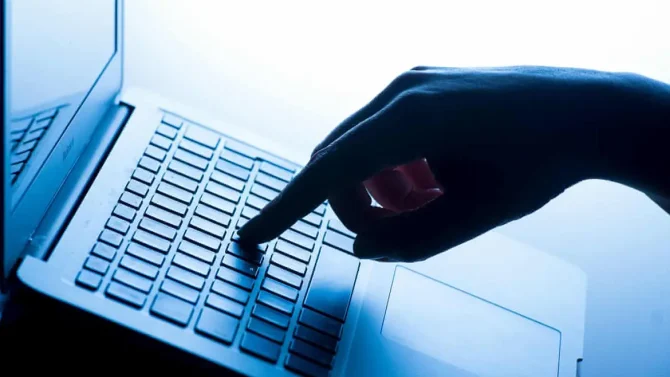Advancing Cybersecurity: AI’s Keystroke Sound Identification

Artificial intelligence has demonstrated the capacity to discern passwords through the auditory cues of keystrokes, as indicated by a recent investigation. Engaging in the input of a computer password while engaged in a Zoom conversation might inadvertently unlock the gateway to a potential cyber assault. This revelation stems from a study asserting that artificial intelligence (AI) possesses the capability to deduce the keys pressed by intercepting the audible sounds of typing.
Experts assert that the proliferation of video conferencing tools, exemplified by Zoom, and the ubiquity of devices equipped with built-in microphones have collectively escalated the potential for cyber intrusions based on acoustic analysis.
Presently, researchers declare the successful development of a system capable of discerning keystrokes on a laptop keyboard with an accuracy exceeding 90%, solely predicated upon the audio recordings.
Dr. Ehsan Toreini, a co-author of the study at the University of Surrey, opines, “I can envision the precision of such models and associated assaults only increasing.” This perspective underscores the growing significance of public discourse concerning the governance of AI, especially in the context of the burgeoning prevalence of smart devices with integrated microphones within households.
The research, presented within the framework of the IEEE European Symposium on Security and Privacy Workshops, illuminates the methodology employed by Toreini and colleagues. They harnessed machine learning algorithms to fashion a framework capable of identifying the depressed keys on a laptop solely through sound, reminiscent of the approach adopted in recent years on the Enigma cipher device.
The study chronicles how each of the 36 keys on a MacBook Pro, encompassing letters and numerals, was tapped 25 consecutive times using various fingers and degrees of pressure. These auditory signatures were recorded both during a Zoom call and using a smartphone positioned in proximity to the keyboard.
Subsequently, a portion of the data was input into a machine learning system that progressively learned to discern the distinctive acoustic features linked to each individual key. While the precise cues leveraged by the system remain ambiguous, Joshua Harrison, the study’s primary author from Durham University, suggests that the spatial arrangement of keys on the keyboard’s periphery might exert a pivotal influence on the varying sounds.
The system was subsequently evaluated using the remaining data. The findings illustrate that the system accurately matched the correct key to its auditory signal, achieving a precision rate of 95% during phone call recordings and 93% during Zoom call recordings.
This study, co-authored by Dr. Maryam Mehrnezhad from Royal Holloway, University of London, is not the inaugural demonstration of auditory keystroke identification. However, the researchers assert that their investigation deploys cutting-edge techniques, attaining the highest documented accuracy thus far.
Although the researchers acknowledge that their work serves as a proof-of-concept study and has not been harnessed to breach passwords or in real-world scenarios, such as public spaces like coffee shops, they underscore the necessity for vigilance. They highlight that laptops, characterized by standardized keyboards and their frequent use in public settings, are particularly susceptible. Analogous eavesdropping techniques could be extended to any type of keyboard.
The researchers propose several strategies to mitigate the risks associated with acoustic “side channel attacks.” These include adopting biometric passwords where feasible and enabling two-step verification systems. Alternatively, they suggest employing the shift key to incorporate a blend of uppercase and lowercase letters, numbers, and symbols.
Harrison adds, “Discerning when someone releases the shift key is exceptionally challenging.”
Prof. Feng Hao, affiliated with the University of Warwick and not involved in this study, warns against typing sensitive content, including passwords, on a keyboard during Zoom calls. He highlights that aside from auditory signals, subtle movements of the shoulder and wrist captured by the camera can divulge side-channel information about typed keys, even when the keyboard itself remains hidden from view.
Stay Updated about the latest technological developments and reviews by following TechTalk, and connect with us on Twitter, Facebook, Google News, and Instagram. For our newest video content, subscribe to our YouTube channel.





